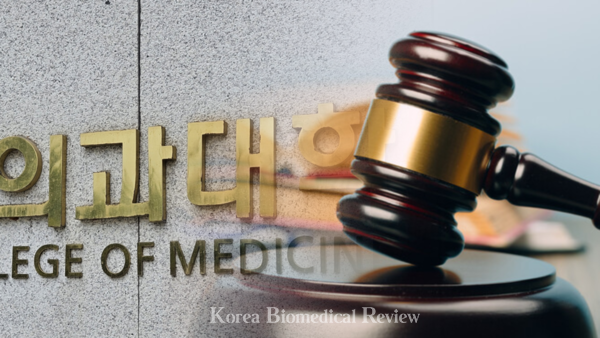The Supreme Court has dismissed the medical community's appeal to halt the government's plan to increase medical school quotas in 2025, stating that the increase will not impact the quality of education for current medical students.
On Wednesday, the Supreme Court dismissed the application for a preliminary injunction filed by students and medical professors at Pusan National University College of Medicine, and trainee doctors against the Ministers of Health and Welfare and Education. The Court upheld the decision of the lower court.

Following the Seoul High Court's ruling, the Supreme Court recognized the standing of the medical student plaintiffs. However, it noted that the increase in medical school seats in 2025 applies to only one academic year.
"It is difficult to conclude that the quality of education received by current students will be significantly reduced," the Supreme Court stated.
Given the nature of medical education, "the training required to become a physician often occurs one to two years after admission. It is difficult to imagine that increasing the number of new students in 2025 will make it impossible or significantly reduce the quality of the education required to train doctors," the court added.
Given the projected shortage of physicians in the future, the court determined that granting the request for an injunction would significantly disrupt the expansion of medical school seats, which is critical to public health.
Furthermore, the court stated that suspending the increase in medical school quotas ahead of the 2025 university admission examination would cause significant disruption to test takers and educational institutions.
Immediately after the ruling, Lawyer Lee Byung-chul of law firm Chan-Jong, representing the medical community, said, "It is very unfortunate and regrettable that the court decided public welfare is a priority because new students have a two-year premedical course to prepare for the medical training, even though the student quota will increase by 75 from the current 125."
The medical community has filed a total of 12 related lawsuits to block the increase in medical school seats. The remaining 11 cases are awaiting decisions from the Seoul High Court and the Supreme Court.
Related articles
- 12,000 Korean doctors rally against government in Yeouido
- Senior doctors at Asan Medical Center to take a week off from July 4
- Doctors warn of Korean healthcare collapse in letter to The Lancet
- President Yoon may replace health minister with an insider
- As Seoul fixes increased medical school enrollment quota, doctors make last-minute appeal to Supreme Court
- Medical students applying for essential departments nosedive after increasing admissions
- ‘Weaning tertiary hospitals off reliance on trainee doctors will raise labor costs by 50%’
- Seoul to fire trainee doctors unwilling to return to work by end of June
- 94.7% of trainee doctors at tertiary hospitals in greater Seoul refuse to work
- Government grilled for lack of fiscal estimate in increasing medical students
- ‘We are free to quit,’ say 3 trainee doctors suing for severance pay
- Hardline medical professors call for boycotting student recruitment amid growing skepticism
- National university hospitals face bankruptcy risk amid $912 mil. revenue drop

